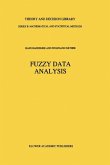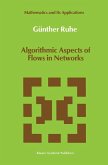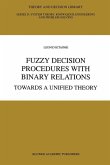Queueing networks constitute a large family of stochastic models, involving jobs that enter a network, compete for service, and eventually leave the network upon completion of service. Since the early 1990s, substantial attention has been devoted to the question of when such networks are stable.
This volume presents a summary of such work. Emphasis is placed on the use of fluid models in showing stability, and on examples of queueing networks that are unstable even when the arrival rate is less than the service rate.
The material of this volume is based on a series of nine lectures given at the Saint-Flour Probability Summer School 2006.
Lectures were also given by Alice Guionnet and Steffen Lauritzen.
This volume presents a summary of such work. Emphasis is placed on the use of fluid models in showing stability, and on examples of queueing networks that are unstable even when the arrival rate is less than the service rate.
The material of this volume is based on a series of nine lectures given at the Saint-Flour Probability Summer School 2006.
Lectures were also given by Alice Guionnet and Steffen Lauritzen.
From the reviews:
"This book deals with the issue of the queueing network stability. ... the basic fluid model is employed to demonstrate the global rate stability, often called globally weak stability. This book, including the material from a series of nine lectures given at the Saint-Flour-Probability Summer School, 2006, is very important. In my opinion it answer the needs of all who use queueing networks in their research studies." (Jerzy Martyna, Zentralblatt MATH, Vol. 1152, 2009)
"This is a mathematically complete and largely self-contained exposition of the fluid-limit approach to the stability analysis of queueing systems. It is a good introduction for mathematicians, and an excellent reference for anyone who is mathematically mature and interested in the issue of stability." (Adam Shwartz, Mathematical Reviews, Issue 2010 b)
"This book deals with the issue of the queueing network stability. ... the basic fluid model is employed to demonstrate the global rate stability, often called globally weak stability. This book, including the material from a series of nine lectures given at the Saint-Flour-Probability Summer School, 2006, is very important. In my opinion it answer the needs of all who use queueing networks in their research studies." (Jerzy Martyna, Zentralblatt MATH, Vol. 1152, 2009)
"This is a mathematically complete and largely self-contained exposition of the fluid-limit approach to the stability analysis of queueing systems. It is a good introduction for mathematicians, and an excellent reference for anyone who is mathematically mature and interested in the issue of stability." (Adam Shwartz, Mathematical Reviews, Issue 2010 b)








